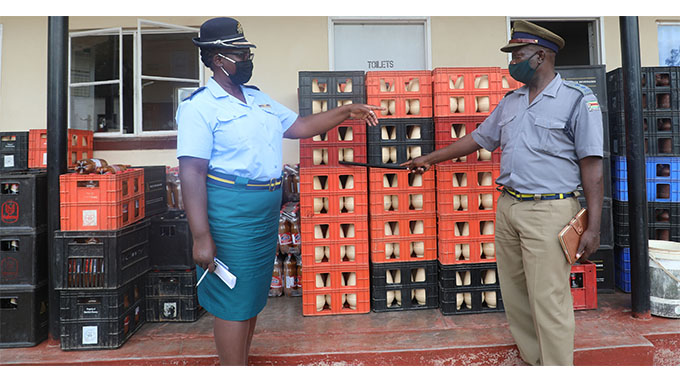Safety nets roll out for vulnerable families

Michael Magoronga/ Patrick Chitumba, Midlands Bureau
GOVERNMENT in partnership with development partners is continuing to roll out relief programmes to cushion vulnerable families from hardships brought about by lockdown restrictions and last year’s drought.
Following the gazetting of stricter lockdown conditions over the weekend, Government has since reactivated the disbursement of Covid-19 relief funds to vulnerable members of society.
The cash disbursement ended last year in December with over 276 000 people having benefitted, but Government has since decided to continue with the programme.
On the other hand, the World Food Programme (WFP) is delivering assistance to a total of 326 004 urban residents across the country and plans are underway to increase the numbers to reach over half a million as soon as enough funding is secured.
Public Service, Labour and Social Welfare Minister Professor Paul Mavima, in an interview Tuesday, said Government has started the process of reactivating the Covid-19 relief cash payouts to assist the people who will be hard hit by the lockdown.
Prof Mavima said he didn’t have the actual cash amounts disbursed for the beneficiaries off hand.
“We are working on activating the cash payouts to mostly the vulnerable people who will be affected by the lockdown announced over the weekend. We need to have the cash payouts so that the people at least have money to buy mealie meal and cooking oil for their families. Last year over 276 000 people benefitted from the cash disbursements,” he said.
Prof Mavima said his ministry is going to submit to Treasury names of those whose livelihoods will be affected by the measures put in place to mitigate against the spread of Covid-19. He urged people to go and register with the Department of Social Welfare for vetting and possible consideration under the Covid-19 relief fund.
The WFP programme is bankrolled by USAID and implemented by Plan International. The urban social assistance program is so far benefitting a total of 58 000 people in the Midlands province while 33 139 are benefitting in Manicaland and Bulawayo has 36 000 beneficiaries.
Matabeleland has 20 000, Masvingo 20 125, Harare 50 000, Mashonaland East 39 000, while Mashonaland West has a total of 78 740 beneficiaries.
The WFP team recently toured some of the distribution centres in Midlands Province where 22 000 people are benefitting in Kwekwe, 18 000 in Gweru, 10 000 in Gokwe and another 8 000 beneficiaries drawn from Redcliff.
Government is working closely with WFP and Plan International to improve the nutritional status of vulnerable communities in the country.
The WFP programme started in August 2020 and is expected to end in February, but WFP is appealing for additional resources to extend the programme.
Beneficiaries are each being paid US$12 a month or given vouchers.
More than US$3, 9 million is disbursed to beneficiaries every month.
According to WFP spokesperson Claire Nevill, close to eight million people in the country are in dire need of food assistance
“WFP has mobilised US$175 million to give food assistance to four million people in the country during the first half of 2021,” she said.
The food relief programme is also running concurrently with other complimentary activities such as nutrition sessions and savings practices as well as gender-based violence programmes.
“One of the major causes of gender-based violence is hunger and poverty. WFP is conducting awareness sessions with urban communities on protection, and gender-based violence as well as informing households about dietary diversity and nutritional impact,” said the WFP spokesperson.
“WFP has already been delivering its urban food assistance programme and is looking for resources to scale up the response to meet the targeted needy population.”
She said the humanitarian organisation was exploring other ways to improve food security and nutrition among urban and rural communities as well as on school feeding programmes.










Comments